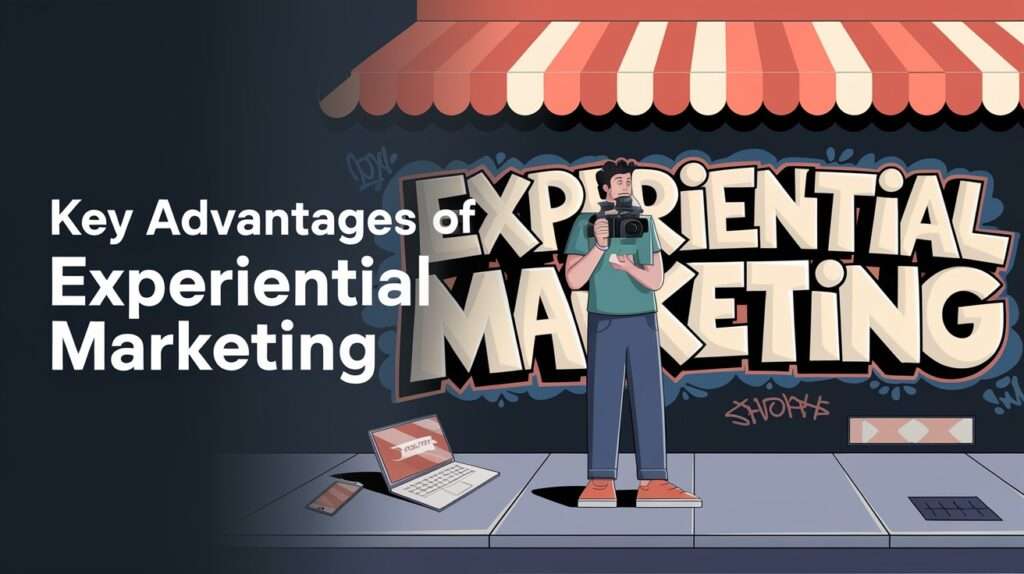Experiential marketing has emerged as a powerful strategy for brands aiming to establish stronger connections with consumers. This approach focuses on creating memorable experiences that engage customers on a personal level. In 2024, brands that effectively utilize experiential marketing services can differentiate themselves in a competitive landscape. This article delves into the key benefits of experiential marketing, highlighting how it can enhance brand loyalty, customer engagement, and overall market presence.
Emotional Connection with Consumers
One significant benefit of experiential marketing is its ability to build emotional connections between brands and consumers. Unlike traditional advertising methods that often rely on passive consumption of information, experiential marketing allows customers to engage directly with the brand. This active participation fosters a sense of loyalty and belonging, as consumers feel a deeper connection to the brand.
When a company organizes an immersive event where attendees can experience its products firsthand, the impact is profound. For instance, a beverage company might set up a tasting booth at a local festival, allowing consumers to sample new flavors while engaging with brand representatives. These interactions create lasting memories and establish emotional ties that influence purchasing decisions. Consumers are more likely to choose a brand they feel emotionally attached to over competitors.
Increased Brand Awareness
Experiential marketing effectively boosts brand awareness. Unique and engaging experiences generate buzz both in-person and online, leading to organic promotion through word-of-mouth and social media sharing. When people attend an event or engage in an interactive experience, they are likely to share their experiences with friends and followers, thereby amplifying the brand’s reach.
For example, a well-executed experiential event can result in significant media coverage and social media mentions, further elevating the brand’s visibility in the marketplace. If a fashion brand hosts a pop-up shop featuring exclusive merchandise and interactive displays, it can attract attention from fashion influencers and bloggers, who will then share their experiences with their audiences.
Additionally, the interactive nature of these experiences encourages attendees to capture and share content, further extending the brand’s reach. Whether through photos, videos, or live posts, the visibility created by experiential marketing is invaluable for enhancing brand awareness.
Enhanced Customer Engagement
Experiential marketing offers opportunities for deeper customer engagement. By encouraging interaction and participation, brands can gather valuable feedback and insights from their audience. This two-way communication allows companies to understand customer preferences, desires, and pain points better.
When attendees participate in interactive installations or events, they provide instant feedback. For instance, a tech company might set up a virtual reality experience where users can test out new products. This direct engagement not only provides the brand with immediate insights into customer preferences but also helps consumers feel more invested in the product’s development.
Moreover, engaging experiences can lead to an increased likelihood of repeat interactions. When customers feel involved, they are more inclined to return for future events or promotions, fostering a cycle of engagement that benefits both the brand and the consumer. Brands can leverage these interactions to build a community around their products, encouraging ongoing dialogue and feedback.
Data Collection for Improved Strategies
Another important aspect of experiential marketing is the ability to collect data for future marketing strategies. Through various interactive setups, brands can gather information about attendee behavior, preferences, and demographics. This data is invaluable for refining marketing strategies and tailoring future campaigns to better meet the needs of target audiences.
For example, event management teams can analyze attendance numbers, engagement levels, and customer feedback to evaluate the success of an experiential marketing initiative. If a brand discovers that a particular activity was particularly engaging, it can replicate that success in future events. Similarly, if certain demographics are underrepresented, the brand can adjust its marketing strategies to better target those audiences.
Moreover, integrating technology such as QR codes or mobile apps can enhance data collection efforts. Attendees can check in at different stations, providing brands with a wealth of information that can be analyzed to improve future experiential marketing campaigns.
Strengthened Brand Loyalty
Experiential marketing plays a crucial role in enhancing brand loyalty. When consumers have positive experiences with a brand, they are more likely to remain loyal customers. By creating memorable interactions, brands can encourage repeat purchases and foster long-term relationships.
For example, a cosmetics brand that invites customers to participate in a hands-on workshop to create their own beauty products not only provides a unique experience but also cultivates a sense of ownership among participants. When consumers have invested time and creativity into a product, they are more likely to feel a sense of loyalty towards the brand that facilitated the experience.
Additionally, successful experiential marketing campaigns can lead to positive reviews and testimonials, further solidifying brand loyalty. Satisfied customers are more inclined to share their experiences with others, resulting in organic promotion that enhances brand reputation and loyalty.
Competitive Advantage in the Market
In a crowded marketplace, brands must find innovative ways to stand out. Experiential marketing offers a unique approach that differentiates a brand from its competitors. While traditional advertising may blend into the background, memorable experiences leave a lasting impression on consumers.
For instance, during a product launch, a brand could host an exclusive event that immerses attendees in the product’s benefits and features. By offering an unforgettable experience, the brand not only captures attention but also creates a buzz that can drive future sales.
Moreover, experiential marketing allows brands to showcase their values and culture in a way that resonates with consumers. Brands that prioritize sustainability, for example, can host eco-friendly events that highlight their commitment to environmental responsibility. This alignment of values can attract consumers who prioritize sustainability in their purchasing decisions.
Experiential Marketing in Future Strategies
As brands continue to navigate the evolving landscape of marketing in 2024, embracing experiential marketing offers a multitude of advantages. From fostering emotional connections and enhancing brand awareness to collecting valuable data and strengthening brand loyalty, the benefits are substantial.
Brands looking to leverage these advantages should consider collaborating with a professional marcom marketing company to develop and implement effective experiential marketing strategies. Such partnerships can ensure that brands create impactful experiences that resonate with consumers and drive long-term success in a competitive marketplace.


